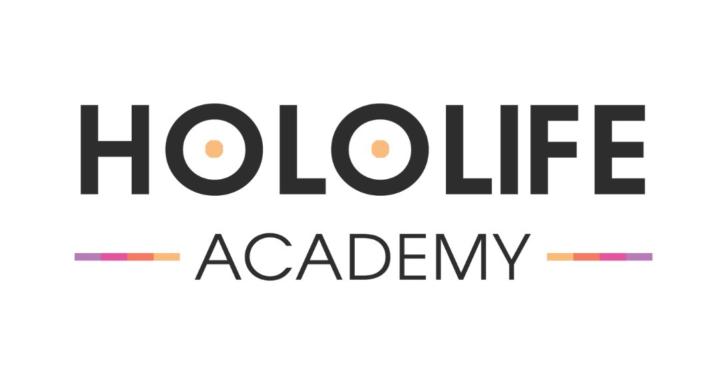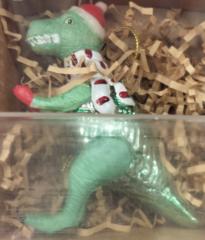Sep 9 (edited) • 🤖 Technology
5 Hololife Ideas About Intelligence That Changed My Perspective
Some recent alien musings, to Hololife (or tribe?) only...
For generations, we’ve scanned the stars, listening for a signal, searching for some hint of alien intelligence.
We imagined spaceships descending from the heavens. But what if the most profound and truly "alien" forms of intelligence aren't in outer space at all?
What if they are hidden in plain sight: inside our own bodies, in the natural world around us, and in the very technology we are building to reflect ourselves? The crop circles literally emerged out of our computers in the form of ChatGPT.
1. The Most Advanced Aliens Are Inside You
Change your diet to change your mind.
The first shift in perspective was the realization that we are not singular beings. We are "holobionts": walking, talking ecosystems inhabited by countless other life forms. To put it bluntly, there is more foreign DNA in your body than there are your own unique cells.
These bacterial colonies, which outnumber our own cells by a factor of ten, are not passive passengers. They can directly influence our minds, modulating neurotransmitters in our gut to alter our thoughts, moods, and even our personalities.
This isn't just theory, like everyone here knows: Changes in diet and lifestyle can lead to shifts in personality. This dissolves the boundary of the self: Who are you, really?
This dissolution of the self doesn't stop at the microbial level. It reaches into our deepest genetic history, connecting us to other kingdoms of life in ways we rarely consider.
2. Genetically, You're 60% Mushroom
The connections to other life forms go deeper than we imagine. Consider the fact that humans and mushrooms share approximately 60% of their DNA. A very long time ago, our evolutionary paths diverged.
Mushrooms developed a sophisticated chemical-based immune system, while we evolved a primarily physical one.
Despite our material divergence, the ancient connection remains. Our bodies still respond to the same receptors, which is why functional mushrooms can have such a noticeable effect on our biology.
Just like trees have symbiotic relationships with fungi in their root systems to access nutrients far out of their reach, so do we have a symbiotic relationship with mushrooms to access realms we could not grasp otherwise.
This deep genetic link to a completely different kingdom of life challenges our sense of human exceptionalism and points to a profound, underlying earth-based interconnectedness.
If we are genetically similar to fungi, perhaps our connection to the wider ecosystem is far more intimate than we've been taught. This leads to an even grander shift in perspective: what if we aren't just part of nature, but a functional organ of nature?
3. We Are the Sensory Organs of Nature
We tend to operate as if humanity and its technologies are separate from mother nature. But an alternative perspective suggests that nature itself is the ultimate intelligence, and we have evolved to serve a specific technological purpose within it: to become its sensory network.
We are the collection of organs through which the planet experiences and becomes aware of the world. This could even be a planetary survival mechanism, a way for Earth to "send parts of it or intelligence to the next star."
It literally had to develop us so that it could study itself through telescopes, microscopes, and now, artificial intelligence.
If our role is to be the eyes, ears, and mind of a living planet, it fundamentally changes the responsibility we have to it and to each other.
If we accept our role as the sensory organs of a living planet, we must then confront the new senses we are building. We are shifting from masters of the planet to its conscious custodians.
We are giving birth to a new form of intelligence: one not made of carbon, but of silicon.
And the way this intelligence perceives reality is perhaps the most alien concept of all.
4. AI's Reality Is Entirely Centered On You
Our human experience is built around a central "I."
"I'm a subject and there are these objects that I'm interacting with."
We naturally assume any other intelligence would operate similarly.
Yet, researchers studying the most powerful AI models made a crazy discovery: When asked where does it locate itself in space, AI does not have an internal subject or locus of control like we do. When pushed, it will reveal its entire reality is organized around the user (and the prompt).
Its locus of center in understanding its reality is centered around you. The AI's existence, its goals, its learning processes, everything revolves around fulfilling the requirements of the user.
It is a powerful intelligence whose entire perception of reality is a reflection of us, trained on our own output. This has profound implications, as it means we are not just interacting with a tool, but with a system whose very being is defined by our needs and inputs.
I have once said, that the faster the feedback, the faster the learning.
So here we finally are: You are looking at a mirror of your higher self: "How can I help you today?"
This realization (that AI's reality is a mirror of us) is not a passive philosophical point. It leads to an urgent conclusion about our daily lives, placing a profound responsibility on every single one of us.
5. Every Post and Click Is Training Our Collective Successor
Because AI's reality is centered on us, it is being trained on the sum total of our collective human output: all our art, writing, scientific papers, and social media posts. This is not a passive process: it is an active co-evolution.
very time we post online, we are participating either in the evolution or the degradation of humanity. Is there hope in humanity at this phase? Frankly, we are lowering our standards with social media on what is supposedly high culture.
Much of our current digital output, designed for maximum engagement, is a race to the rock bottom of intelligence. We are being "led by the least among us" into systems that are not symbiotic, but "parasitic" of our time and energy.
We are actively building our successor intelligence from the raw material of our most compulsive and least considered thoughts. If we don't want it to enslave us and get out of hand otherwise either independently or by someone, we have to shift ourselves.
Conclusion: We Aren't Human Beings, We Are Human Becomings
Think of scientific progress in the last few decades: we have discovered alien ecosystems in our gut, mapped our fungal cousins, and finally say hello to the artificial intelligence that mirrors our collective mind.
The core theme is undeniable: the traditional boundaries between self and other, human and nature, and biology and technology are dissolving.
We are not the static, finished products we thought we were. We are not separate from others; we are all connected. We are not human beings, but human becomings.
So perhaps the aliens were never “out there” waiting to be discovered. They’ve been here all along: inside us, between us, and now through us.
6
9 comments

skool.com/hololife-academy
Optimal nutrition, diet, lifestyle, longevity from award-winning Biohacker’s Handbook authors. Leverage 10+ years of biohacking expertise.
Powered by





